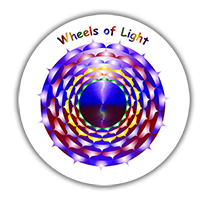
Clinical aromatherapy is the controlled use of essential oils for specific, measurable outcomes. These effects can occur at both psychological and physiological levels. The choice of essential oil is often based on the chemistry of that essential oil, which in turn will indicate the safest method of use.
Essential oils can be used to effect infections, insomnia, chronic pain, nausea, aid in stress management, as well as in specific clinical specialties such as cardiology, care of the elderly, critical care, dermatology, endocrinology, hospice and end-of-life, immunology, OB/GYN, oncology, pediatrics, psychiatric, and respiratory care.
Aromatherapy is the use of natural and high quality plant essential oils to enhance the health of body and mind, and to treat disorders. Aromatherapy is perhaps not the best word to describe the technique of clinical aromatherapy, because it implies healing through aroma or scent alone, which is not the case. The way essential oils are used in clinical aromatherapy varies with the effect desired, but essentially consists of applications of the oils in the general environment and on the body itself.
Aromatherapy’s main objective is to enhance and balance the individual constitution and thereby prevent the development of disease. Second, it aims to treat actual sickness when it arises. Because of the nature of essential oils, clinical aromatherapy’s working method is essentially non dualistic, addressing the individual’s body/mind as a whole. Where the origin of disease is in the psyche, the oils as fragrance will work through neuro-endocrine functions down to the physical body to heal and re-establish harmony. Where the origin of disease is in the body, it will work through the body’s physiology up to the mental and emotional levels to heal and harmonize the whole person.
Aromatherapy involves numerous treatments, some more preventive, others more curative; some more mainstream, others more alternative. They range from general hygiene and massage applications to biomedicine (herbal medicine, naturopathy, acupuncture, Western medicine), and, potentially, psychiatry.
Aromatherapy is based on the three original effects of essential oils: physiological, topical and psychological.
First, being hydrogen-based liquids, essential oils affect the body’s physiology as a stimulant, relaxant, spasmolytic or anti-ineffective.
Second, essential oils affect the skin and superficial tissues when applied topically. Oils can treat different skin types by moisturising, dehydrating or stimulating, as needed. For the same reason, they are also appropriate for treating muscular and articulator conditions, both acute and chronic.
Third, because essential oils are also active in gaseous form and therefore emit fragrance, they also affect the psyche, causing mental, emotional and behavioural changes. Because the physiological, topical and psychological actions of essential oils are all used in clinical aromatherapy, applications of essential oils involving the body and those diffused through the environment are both important.
Again, the key words here are preventive healing, maintenance and balancing of the individual’s vital energies, and engaging of his/her autonomic, spontaneous, self-correcting healing forces.
Nevertheless, incorporating essential oils in various types of bodywork such as neuromuscular and other deep tissue work, lymphatic drainage, rhythmical massage and so on, this opens up many opportunities for clinical Aromatherapy.
Because essential oils perform such a wide variety of physiologic functions, it is basically a matter of first selecting oils that will enhance the particular treatment given, and then determining the best administration method.
The practitioner has to consider not only which oils to select, but also other factors such as the exact dosage required, the correct dilution of the oils and in what medium, the cautions and contraindications associated with each oil, and the duration of the treatment itself.
However, the very nature of essential oils is such that they cut right across distinctions such as body/mind, substance/fragrance, molecule/vibration. This is because essential oil exists in the form of both liquid and vapor. As liquid it affects mainly the body; as vapor it affects mainly the mind. This non-discriminative effect of essential oils is a key to the true nature of Aromatherapy.
When a massage therapist applies essential oils by carrier oil in massage, these exert three distinct effects in a single seamless treatment method: First, there is a superficial effect on the epidermal, muscular and joint tissues (the sinews) when they are applied to the skin. Secondarily, there is an effect on the body’s internal physiology when they diffuse percutaneously into the blood, lymph and mesenchymal fluid circulation. Lastly, there is an effect on the individual psyche as their fragrance is released, causing stimulation of the hypothalamus and entire neuro-endocrine system. It is this comprehensive effect of essential oils on the body/mind that makes Aromatherapy intrinsically and ineluctably holistic by nature.
It is important to take the quality of an essential oil into consideration. Depending on the type of equipment, process, care and time taken to extract an essential oil, the final product may range anywhere from excellent to mediocre. High quality oils are crucial to the success of aromatherapy treatments.
Purchase Essential Oils.
Return to Articles.
Return to Home Page.
